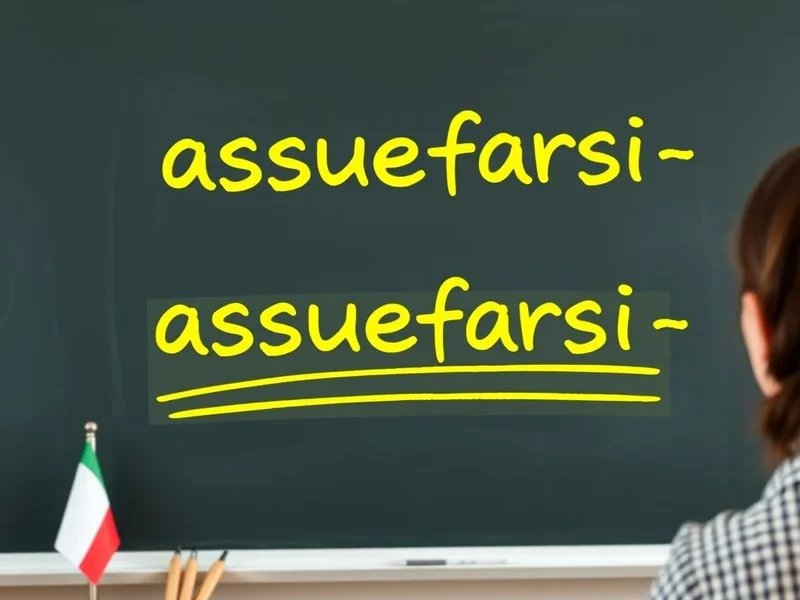How to Use "Assuefarsi a": Meaning and Practical Examples
Learning Italian also means mastering those expressions that make spoken language natural and authentic. Today we focus on a specific phrasal verb: "Assuefarsi a". This verb, often confused with "abituarsi a", is key for expressing the idea of "getting used to" in a deeper sense or, at times, with a negative connotation. Understanding how to use "Assuefarsi a" will help you communicate in Italian more precisely, avoid common mistakes, and enrich your practical Italian vocabulary. We’ll look at its meaning, grammatical structure, and lots of useful examples.

Table of Contents
- What does “Assuefarsi a” mean?
- The Grammatical Structure: How Is It Used?
- Sentences and Examples with “Assuefarsi a”
- Crucial Differences: Common Mistakes to Avoid
- Similar or Related Expressions
- Conclusion
More: How to Use Assomigliare a Meaning Usage and Examples
What does “Assuefarsi a” mean?
- Literal Meaning: To acquire the habit, dependence, or tolerance towards a substance, a medication, or a specific physical condition.
- Example: "Il corpo si assuefa all'effetto della caffeina."
- Figurative Meaning: To gradually get used to a situation, an environment, or a behavior, often negative or unpleasant, to the point of no longer noticing its severity or impact.
- Example: "Con il tempo, le persone si assuefanno al rumore della città."
More: How to Use Associare a Meaning and Practical Examples
The Grammatical Structure: How Is It Used?
"Assuefarsi a" is a reflexive verb that requires the preposition "a" followed by a noun or a pronoun.
- [Subject] + [reflexive pronoun] + [conjugated verb assuefare] + a + [object/action]
- Example:
Io mi assuefo a.../Tu ti assuefai a.../Lui/Lei si assuefa a... - The preposition "a" introduces the element you are getting used to. It's fundamental not to omit it or replace it with other prepositions.
More: How to Use Assistere a for Meaning, Structure, and Examples
Sentences and Examples with “Assuefarsi a”
Here are some practical examples to better understand how to use "assuefarsi a" in real contexts.
📍 Context (Work)
Persona A: "Non capisco come facciano a lavorare con tutto questo rumore in ufficio."
Persona B: "Oh, credimi, dopo un po' ci si assuefa al trambusto. Non ci fai più caso."
📍 Context (Health)
Persona A: "Questo farmaco mi fa dormire molto, ma il medico dice che l'effetto dovrebbe diminuire."
Persona B: "Sì, è normale. Il tuo corpo si assuefa alla sostanza attiva col tempo."
📍 Context (Social)
Persona A: "All'inizio trovavo difficile vivere da solo in una città così grande."
Persona B: "È vero, ma poi ci si assuefa al ritmo e all'anonimato. Diventa quasi una comfort zone."
📍 Context (Technology)
Persona A: "Sono preoccupato che i ragazzi si stiano assuefacendo troppo ai videogiochi."
Persona B: "Capisco. È importante bilanciare il tempo davanti allo schermo con altre attività."
Crucial Differences: Common Mistakes to Avoid
One of the most common mistakes is confusing "assuefarsi a" with "abituarsi a". While both mean "to get used to", there's a subtle but important difference in nuance.
Assuefarsi a Vs. Abituarsi a
Assuefarsi a: Implies a deeper and more gradual process of adaptation, often associated with a tolerance or dependence, especially towards substances or negative/stressful situations. It can have a slightly negative connotation, of desensitization.
- Example: "Si è assuefatto allo stress quotidiano, tanto da non percepirlo più." (He has lost sensitivity to stress)
- According to the Treccani, "assuefare" (and thus "assuefarsi") often refers to the habit acquired by the body to certain substances or conditions.
Abituarsi a: Is more generic and neutral. It simply means getting used to something, without necessarily implying dependence or a negative connotation. It's used for any kind of habit.
- Example: "Mi sono abituato al nuovo orario di lavoro." (I've gotten used to the new work schedule)
In short, while you might "get used to" a new haircut, you would hardly "assuefarsi" to it. The use of "assuefarsi a" is more specific and powerful.
Similar or Related Expressions
| Similar Expression | Short Meaning |
|---|---|
| Abituarsi a | Getting used to something (neutral) |
| Fare l'abitudine a | Acquiring familiarity or practice with something |
| Diventare immune a | No longer being affected by something |
| Example |
|---|
| "Mi sono abituato al caffè amaro." |
| "Devo fare l'abitudine a guidare a sinistra." |
| "Dopo tanti anni, è diventato immune alle critiche." |
Conclusion
Mastering "assuefarsi a" allows you to express an important nuance in Italian, that of a habit that has become deeply rooted, sometimes with implications of dependence or desensitization. Keep in mind that it’s a reflexive verb and always requires the preposition "a". Keep practicing your Italian L2 with these useful Italian phrasal verbs!
Try to create a sentence using "assuefarsi a" in the comments below. What have you gotten used to, or what might you get used to?